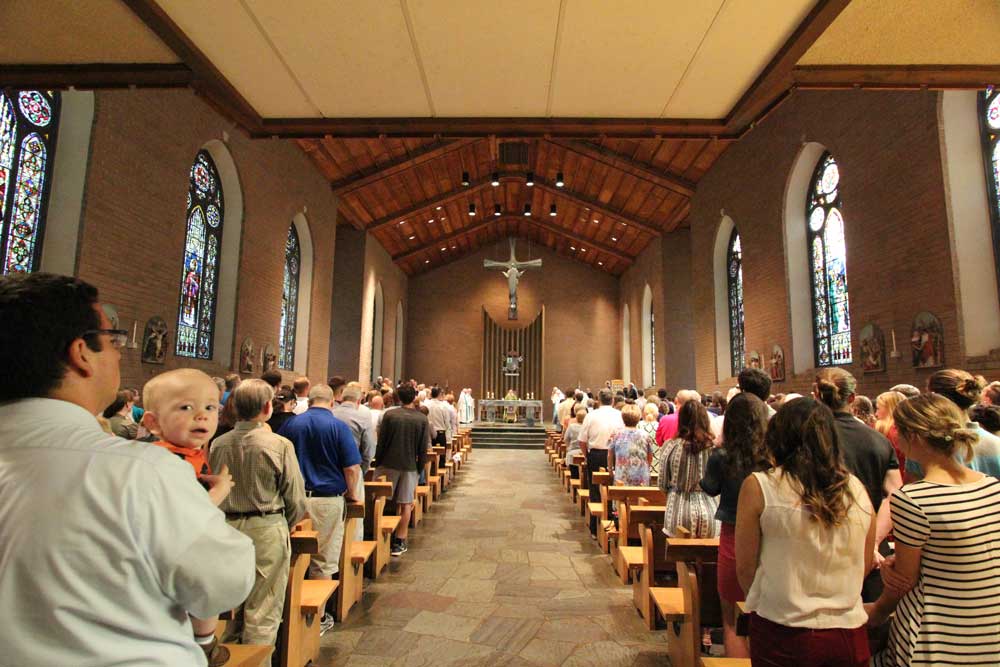By: Dr. Ronald Thomas, Jr.
Do we take Mercy as seriously as God takes it? This is an important question to ask at the conclusion of a public event called “The Year of Mercy.” Seriousness will be required to sustain the momentum for mercy, once all the celebration has passed away.
We often think that having mercy is easier than it is and that mercy is just fellow-feeling, sentimentality, or social action.
We must remember that the mercy we have to give is not ours, it is God’s. It must be on his terms, not our preferred ones. Are we worthy to give God’s mercy into the world? Or, do we want to evade both God and his justice?
It is imperative for us to realize that we cannot be merciful if we are not just. This means non-attachment to sin, as the Church teaches, along with doing justly.
God will not let us handle his mercies if, in essence, all that we are doing is misrepresenting him.
In the pattern of our Lord, we must demand repentance from the sinner, but not, of course, until we have demanded it of ourselves. Then we can mercifully say to the sinner: “I was like you, following my own way. Christ has set me free.”
On the other hand, we know that we are supposed to believe in God’s unconditional love for us, but, strangely, we don’t.
But we must absolutely try to understand and accept this love.
One writer (Loren Broadus) puts it this way: “There is nothing we can do to earn this love, because one cannot earn what it already given.”
What a brilliant insight! If I already have something, I cannot, intelligibly, set about each day to earn it.
St. Paul says in Ephesians 2:8-9, “For by grace you have been saved through faith, and this is not your own doing, it is the gift of God—not because of works, lest any man should boast.”
So, again, our previous writer says:
There is nothing that we can do to earn this love, because one cannot earn that which is already given. When we accept this premise about the nature and action of God, we are free from a living death. We are free from frantically fighting to prove to God and others our worth. . . . Through grace the basic issue of life is solved—the acceptance of us as we are proclaims our worth. We are not loved because we are worthy, we are worthy because we are loved.
If we believe this about God’s great grace, we will automatically project this attitude onto the circumstances of others. Instead of being judgmental and despairing–in a word, apocalyptic–we will be truly evangelical. Our Lord sternly warns us that apocalyptic matters belong only to the Father.
Our attitude should be evangelical, not apocalyptic; especially in this day when so much is going wrong.
Because what does it amount to—all of this error and lunacy of our times? Well, exactly nothing!
Our times might flout every law of God, but they cannot negate a single one of his promises.
With respect to our culture, we should not fancy that we are the saviors or the enforcers. We should weep for the doomed and admonish others through our witness and our generosity, and not falsify the will-to-mercy of the Lord.
This is an attitude nobly expressed by the Dominican Vincent McNabb, who lived in England in the last century:
It would be worthwhile, each one of you, just taking count next week how many you meet who are not Catholics and have not any idea of the thing you are listening to. But oh! dear children in Jesus Christ, an old priest like myself seems to realize more and more, we mustn’t go out into the world as if the world were our enemy and we have to conquer it. It is like the poor wounded man on the road to Jericho; it is hungry, and we want to give it something to eat; thirsty and we want to give it something to drink; homeless, and we want to open the door and give it lodging and a home. It is not an enemy we want to overcome and subdue. We have some glorious thing, some Light, we want those outside to share; like the Sunshine. We want it to be theirs as much as ours. And I think the first argument, and probably the most effective, is our life. But it is no use our speaking of our life if it does not speak for itself! The first apologetic, and possibly the best, is our life, but it must be a life that speaks for itself. We can speak of God’s Mercy to us, of His Mercy shown to sinners of whom I am chief! Ah! The we can speak of ourselves, and tell them of the extraordinary Mercy of God in taking pity on such sinners as we are. We must somehow or other fulfill our duty of spreading the good news.
(. . . )
I don’t think I know my Jesus until I know Him as Jesus, my Redeemer. There is such joy, when we have ill-treated others, in the thought of their forgiveness, that we can almost sing–”Felix Culpa.” It is almost worthwhile to have sinned. Jesus forgives so perfectly. He has only chidden us because we didn’t believe. We thought his love could fail. We did not trust Him or love Him enough. We can only fall at the feet of the world which rejects Him—go down on our knees, as He went down—and offer them the love which is first and best in human life, that they may enter into the love which is first and best in Eternal life.
To end the Year of Mercy, we should model ourselves on the loving seriousness of the Lord, who demonstrates to all who call upon him that he is a boundless Redeemer.
(From: A Vincent McNabb Anthology. F. E. Nugent, ed. (London: Blackfriars Publications), 1955)



